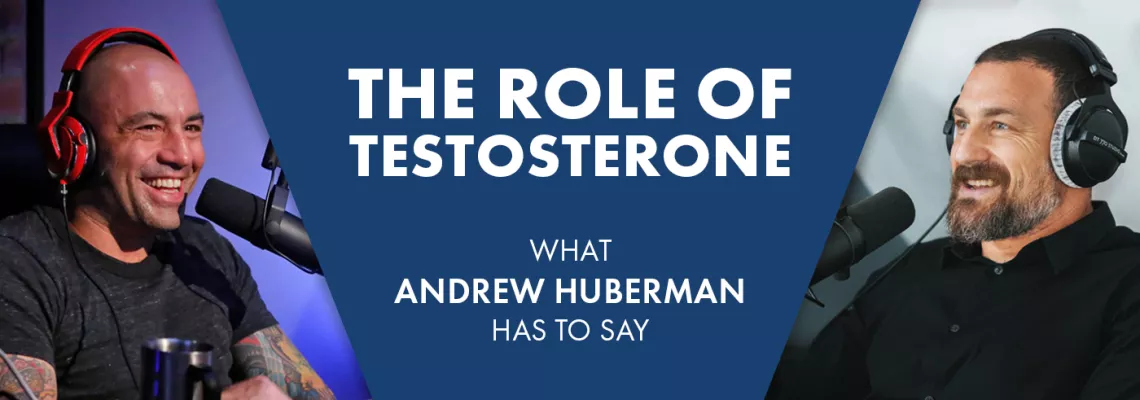03 Mar


Testosterone Makes Effort Feel Good - Andrew Huberman and Joe Rogan
Joe Rogan, the host of one of the most popular podcasts in the world, The Joe Rogan Experience, is known for his wide-ranging conversations with guests from all walks of life. In a recent episode, Rogan sat down with Andrew Huberman, a neuroscientist and professor at Stanford University, to discuss the effects of testosterone on the body.
Testosterone is a hormone that plays a crucial role in male development and affects a wide range of physiological processes. In their conversation, Rogan and Huberman explore the science behind testosterone, its effects on muscle mass, sex drive, and overall health, and the controversy surrounding the use of testosterone supplements.
The conversation is both informative and entertaining, as the two experts delve into the science of the most fascinating hormones in the human body. Whether you're a fitness enthusiast looking to optimize your performance, a researcher interested in the latest findings on testosterone, or simply curious about the inner workings of the male body, this conversation between Rogan and Huberman is sure to provide valuable insights and thought-provoking discussion.
Testosterone is a hormone that plays a crucial role in many physiological functions in the body, including muscle growth, bone density, and sexual function. However, recent research has shown that testosterone may also influence how we perceive effort and reward, making it an essential factor in our motivation to achieve our goals. In this article, we will explore the arguments put forth by neuroscientist Andrew Huberman, who explains why testosterone makes effort feel good.
According to Huberman, testosterone influences the brain's reward system by increasing the release of dopamine, a neurotransmitter associated with pleasure and motivation. When we engage in a challenging activity, such as exercise or work, our brain releases dopamine to signal that the effort is worth pursuing. This response is known as the "reward circuit."
Testosterone amplifies this reward circuit, making the release of dopamine more potent and sustained. Huberman explains that this is why men often report feeling a "rush" or "high" after completing a challenging task. This feeling of euphoria is the result of the brain's reward system being activated to a greater extent than usual.
Furthermore, testosterone may also affect how we perceive pain and discomfort associated with effort. Huberman points out that testosterone may increase pain tolerance by reducing the activity of nociceptors, sensory neurons that transmit pain signals to the brain. This means that individuals with higher levels of testosterone may be able to tolerate more pain and discomfort than those with lower levels. As a result, they may feel more inclined to push themselves to their physical limits, knowing that the effort will be worth the reward.
Finally, testosterone may also affect how we approach social situations. Huberman notes that testosterone can increase social dominance and aggression, which may influence how individuals perceive effort and reward in social contexts. For example, men with higher levels of testosterone may be more likely to engage in competitive activities, such as sports, and feel a greater sense of reward when they win. Conversely, they may also be more sensitive to social cues and feel a greater sense of reward when they are perceived as dominant or successful.












